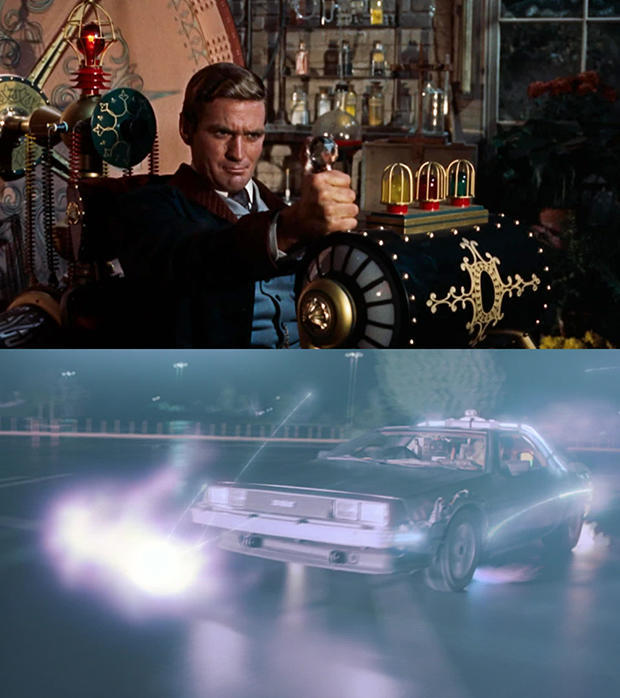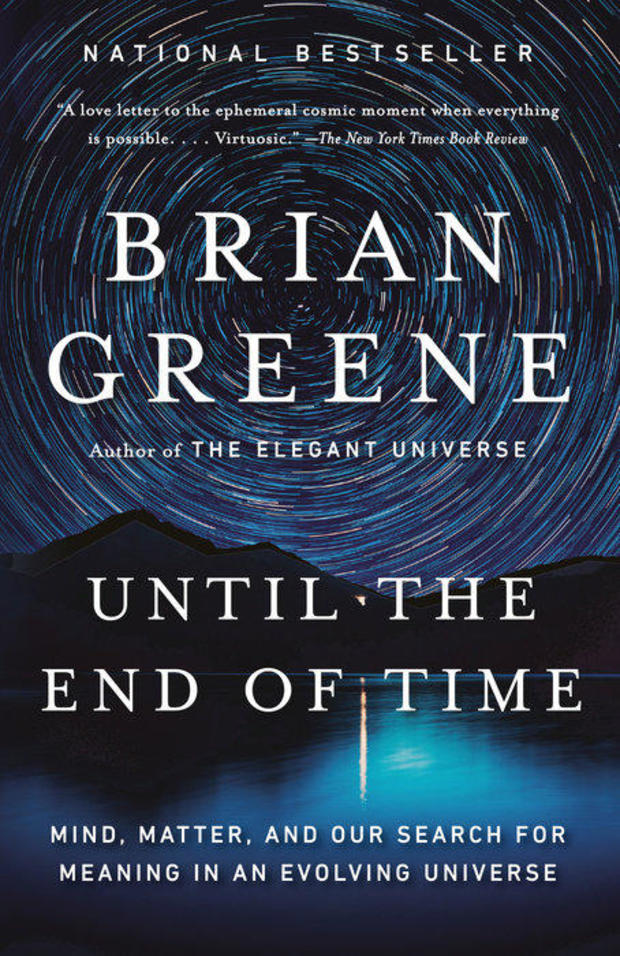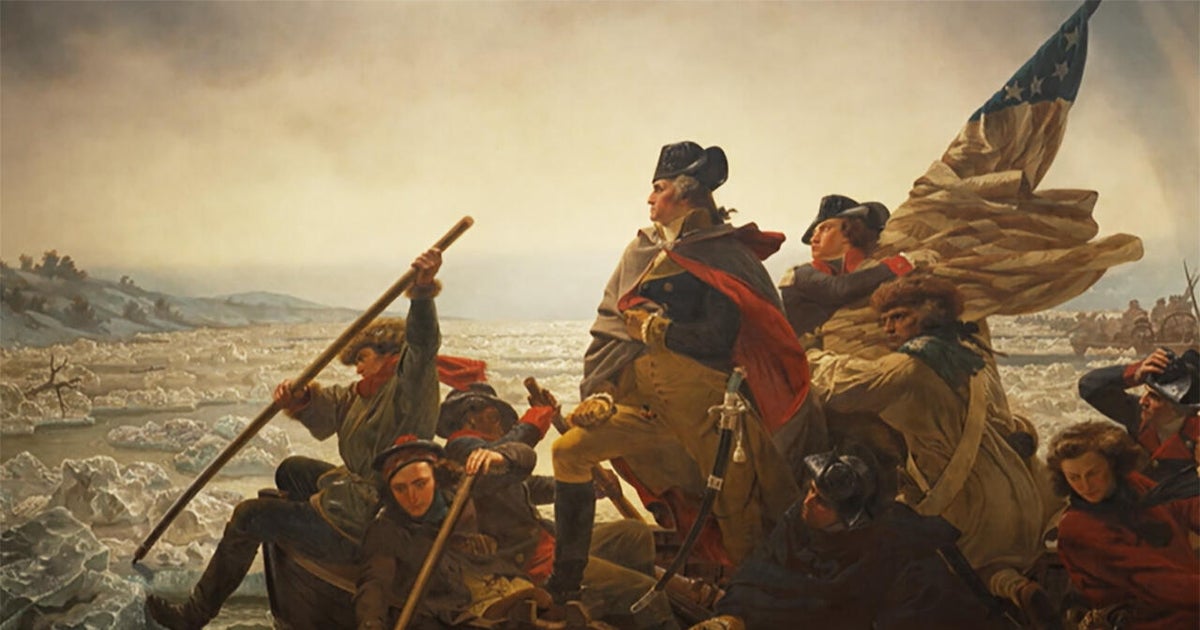Exploring the boundaries of time travel
Be honest: who hasn't wanted to hit fast-forward or rewind on life? For as long as there has been a concept of time, that urge to break the bonds of time is, well, timeless.
"The idea of time travel is actually as old as civilization itself," said Lisa Yaszek, a professor of science fiction studies at Georgia Tech. "We see the very first stories in the 'Mahābhārata,' the great Indian epic, in 400 B.C.E., so they're nearly 2,500 years old."
According to Yaszek, early time travel stories, like Washington Irving's "Rip Van Winkle" or Mark Twain's "A Connecticut Yankee in King Arthur's Court," were full of magic, not science. But, "As we moved into an industrial culture, suddenly we had trains that had to move on schedule from station to station, and ships that had to cross great bodies of water and make it into docks at certain time. We had to make sure that humans in different parts of the world were telling time in the same ways. And I think that was really exciting – we felt like we suddenly did have a little control over time."
Correspondent Faith Salie asked, "And so, that brings us to H.G. Wells?"
"Yes, absolutely, his famous 1895 novel, 'The Time Machine.' H.G. Wells would've seen the first automobiles being tested, the first motorcycles, So, why not get in a vehicle and travel through a few centuries?"
Hollywood has turned that first time machine into a DeLorean, a police box, a phone booth, even a hot tub. But when it comes to time travel movies, is there any science fact to all this science fiction?
Salie asked author and physicist Brian Greene, "What do they get right?"
"Not a whole lot!" he replied.
"I wanna understand time travel completely. Don't dumb it down. How does it work?"
Greene said, "Well, if you model space-time as a four-dimensional Hausdorff differentiable manifold, then you can have trajectories of two observers that begin at one moment in time …"
Salie interrupted: "Okay, we're gonna do some time traveling. I'm gonna go back a few seconds and re-ask that question. I wanna understand time travel. Please dumb it down!"
"Time travel to the future is real," Greene said, in this alternate future. "If you wanna see what the Earth would be like in a million years from now, Albert Einstein tells you how to go about doing it: Get in a rocket ship, travel out for six months near the speed of light, turn around and come back.
"And if you went fast enough, you will come back one year older, according to your own clock. But Earth will have aged a thousand or a million or a billion or a trillion years, all depending on how quickly you went. When you step out of the ship, it will be the future. You will have leapfrogged, traveled into the future."
And according to Einstein, it's not just speed that affects time; it's gravity, too. Just Scott and Mark Kelly – twin brothers born six minutes apart back in 1964.
In 2016, Scott, an astronaut, returned to Earth after 340 days zipping around in the International Space Station. When he touched down, he had added a few milliseconds to that original six-minute age gap.
Scott, in other words, had traveled through time.
Greene said, "Because these are two individuals that experienced different gravitational fields – I guess one was up, one was down, different strengths of gravity – time elapses at different rates. In fact, we do this all the time. Every time we go up in an elevator we are traveling through time at a different rate."
Salie asked what everyone wants to know: "Do you think that we will be able to time travel in the future?"
"I do. It's hard to say when or exactly how, but since it's part of physics as we understand it, at some point, we will be able to make use of these ideas and travel to the future," he replied.
Greene thinks travelling to the past, like Bill & Ted, is much less likely – which is just fine for a majority of Americans. In our CBS News Poll, the future is where they would want to travel to anyway:
Where Would You Go if You Could Travel Through Time Safely?
The Future 53%
The Past 40
Don't Know/No Answer 7
Our fascination with time travel might help us appreciate something else entirely, said Lisa Yaszek: "It's so easy for us to live in our heads and to always be thinking about the past, trapped in memories, or thinking forward to what we'll accomplish, what we'll do in our retirement, that we lose the experience of the here-and-now, and the richness of living in the moment."
For more info:
- Lisa Yaszek, professor of Science Fiction Studies, Georgia Institute of Technology
- "The Future Is Female! 25 Classic Science Fiction Stories by Women, from Pulp Pioneers to Ursula K. Le Guin," edited by Lisa Yasrek (Library of America), in Hardcover and eBook formats, available via Amazon and Indiebound
- Physicist-author Brian Greene
- "Until the End of Time: Mind, Matter, and Our Search for Meaning in an Evolving Universe" by Brian Greene (Knopf), in Hardcover, Trade Paperback, eBook and Audio formats, available via Amazon and Indiebound
Story produced by David Rothman. Editor: Chad Cardin. Illustrations: Mitch Butler.





